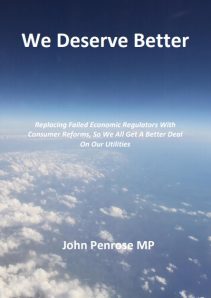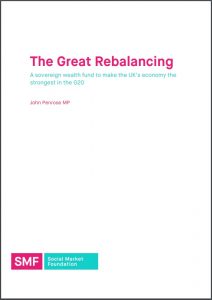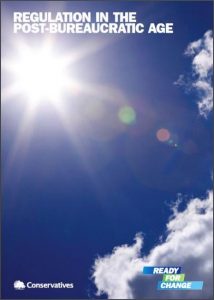Below are some of John’s older policy papers.
Although we still think the ideas are relevant and important today, the feeling is they’ve been built upon in his subsequent papers.
Great Rebalancing
 | Our utility firms provide us all with the unglamorous but necessary products which we need to live in the modern world; essential things like energy (electricity and gas) and water, as well as almost-essentials like bank accounts and telephones too. John’s policy document ‘We Deserve Better’ asks why Britain’s utilities (gas, electricity, water, high street banking, etc) are so unpopular and distrusted by their customers while other industries which provide day-to-day necessities, like food or clothing, do better. |
We Deserve Better
 | This Government will be the first post-Brexit administration, with a once in a generation opportunity to recast the kind of society and economy we want Britain to be. The post-war governments created new institutions like the NHS and the welfare state, helping to forge a new society and build a new nation. Brexit offers a chance for our generation to match the hopes and ambitions of our forefathers. Central to that vision should be the idea of generational justice. Not expecting our children and grandchildren to pay the bills for our lifestyle today. In this paper, John Penrose discusses how a Sovereign Wealth Fund would allow us to create a ready-made investment fund which, because of its super-long-term horizons, could be exactly the kind of patient capital which Britain’s infrastructure projects need. |
Better Regulation
 | The exponential increase in regulation has not only hit businesses (particularly small businesses), but it has also increased the bureaucratic burden on individuals, charities, public bodies and social enterprises. This has hindered innovation and social action and has also led to a rapid increase in government spending on administration and inspection regimes. In this paper, John Penrose MP argues that we need to sweep away ineffective bureaucracy and replace it with a post-bureaucratic approach to regulation that makes use of new technologies and insights from social psychology and behavioural economics to achieve our policy goals in a less burdensome and intrusive way. |
